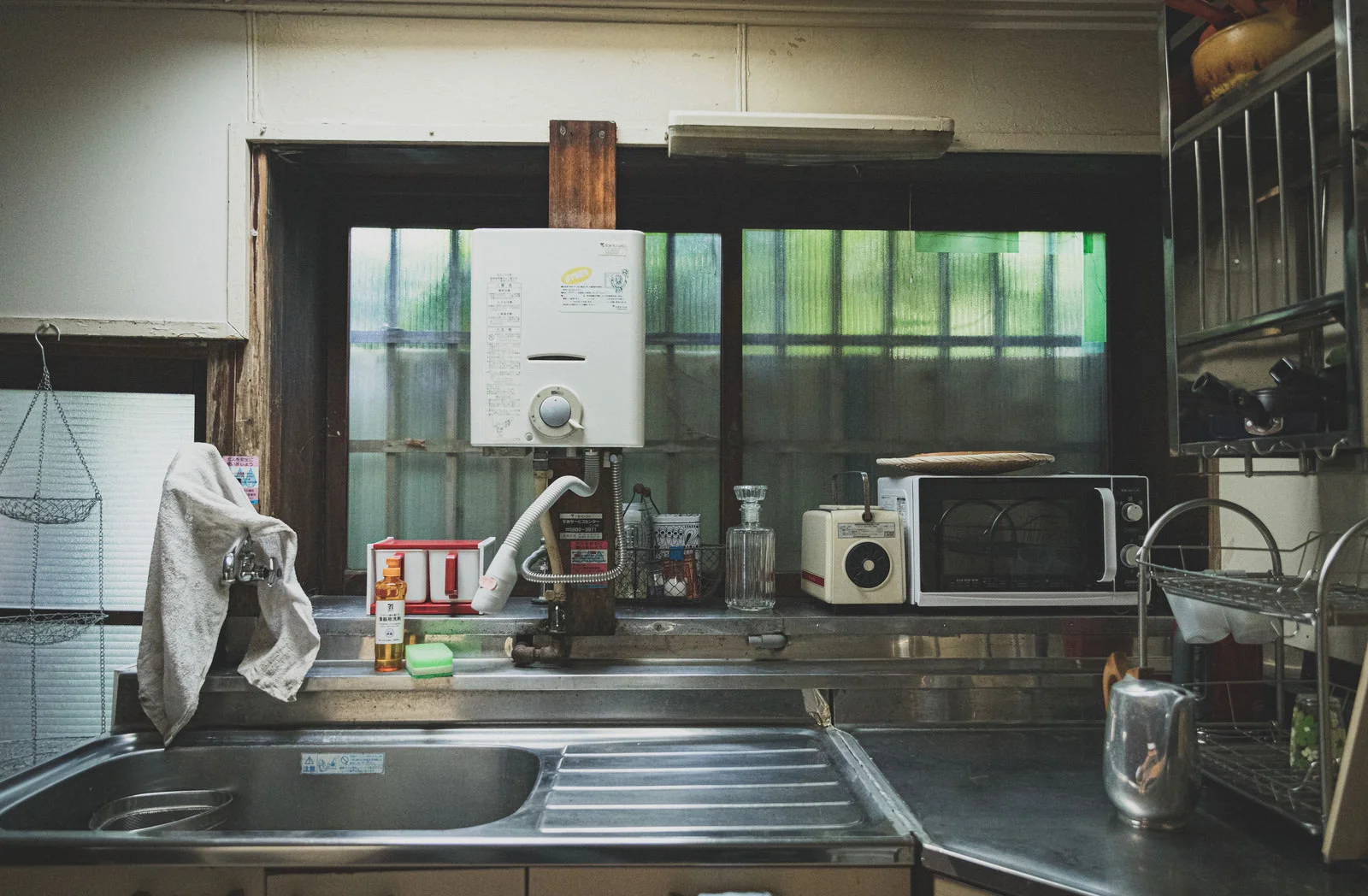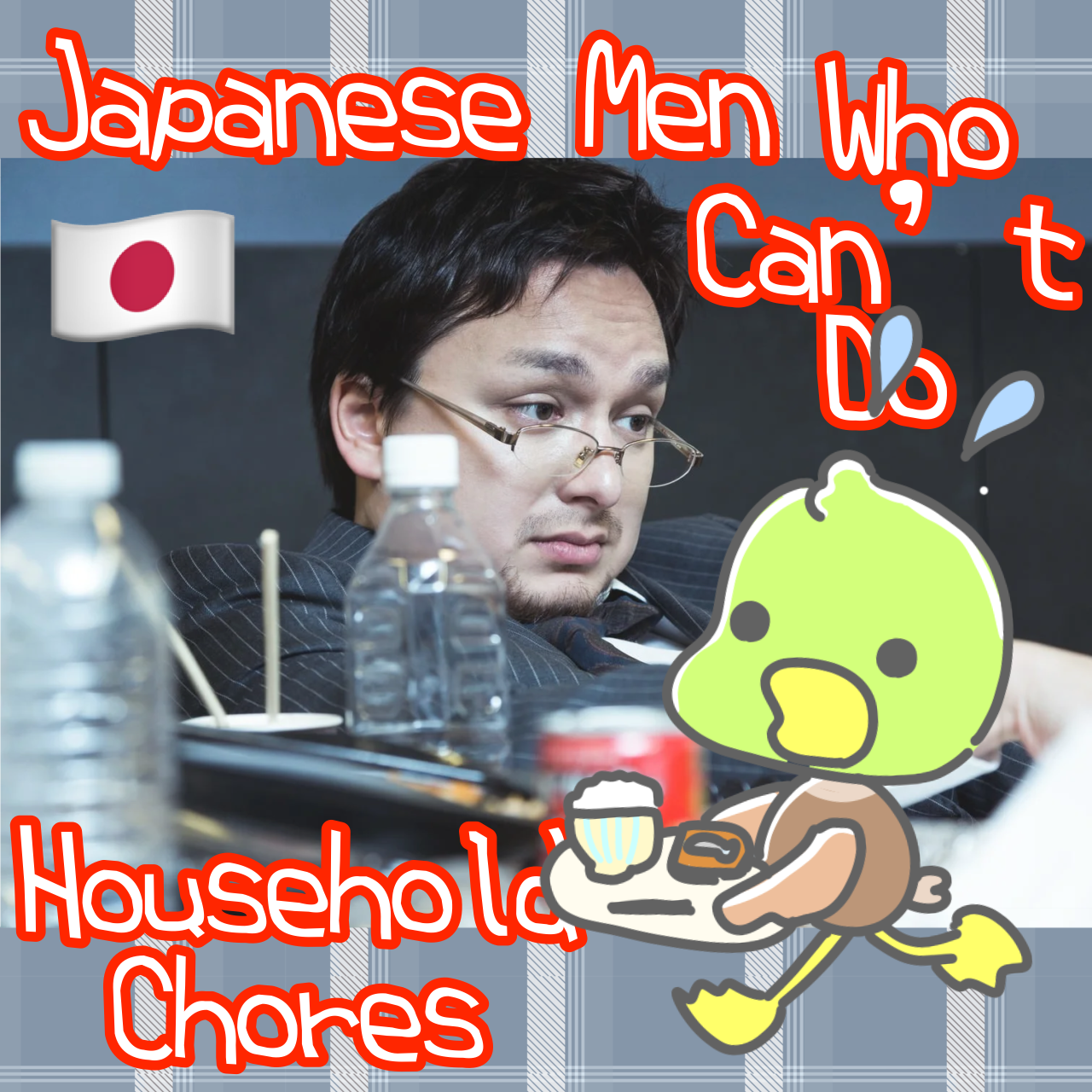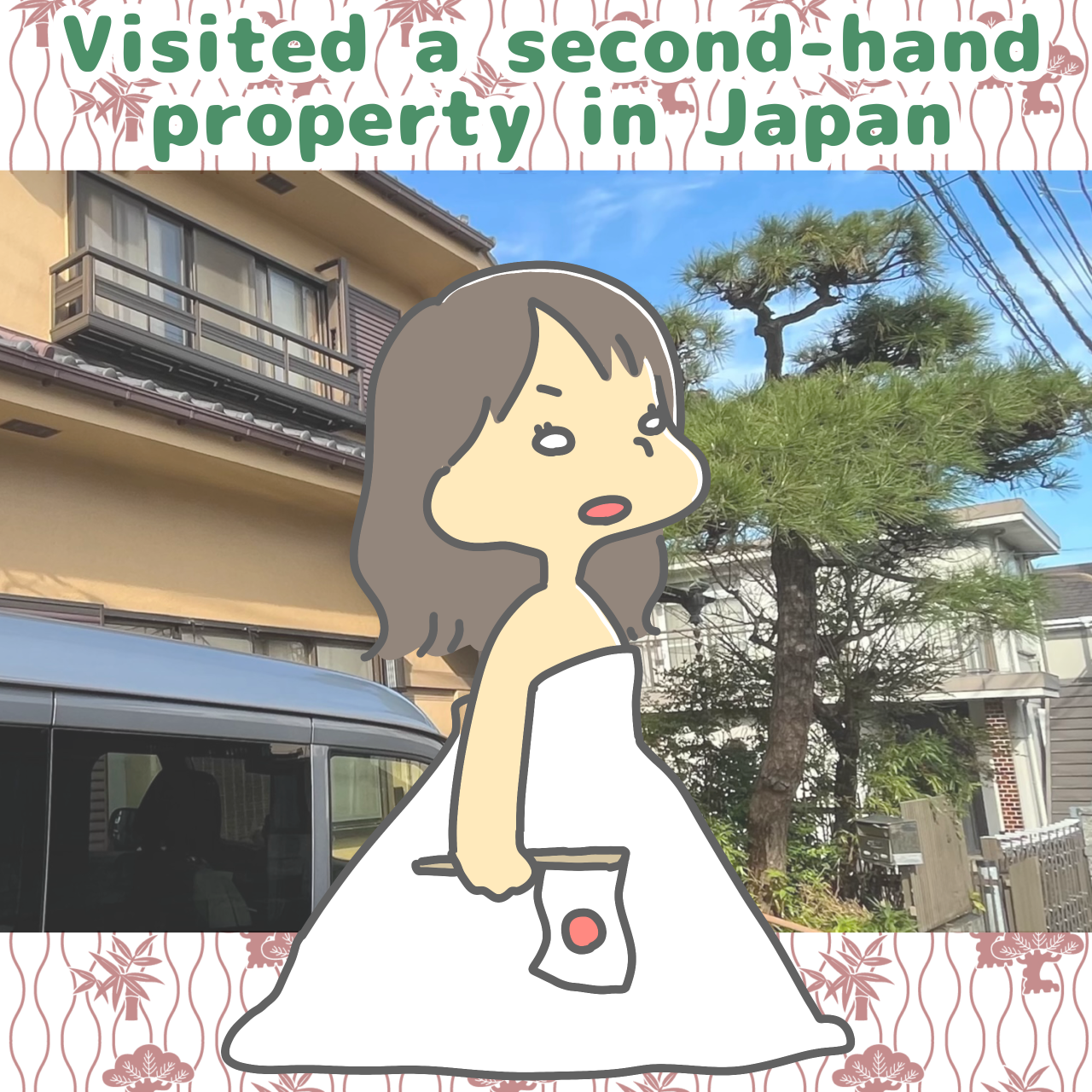When I started living with my husband, he could barely do any household chores.
We both work the same hours, and inevitably, the burden of housework, which I’m more accustomed to, falls on me.
This is a common problem among many Japanese women.

Traditional Gender Roles
In Japan’s traditional culture, men were expected to ‘work outside’ (soto-shoku), while women were to ‘take care of the home’ (uchi-shoku).
This has led to men having fewer opportunities to engage in household chores and to develop these skills.
I grew up in a single-parent household with my mother and sister, so I didn’t have much exposure to how men are taught about housework.
Even when visiting my grandmother’s house, where relatives gathered, my sister and I were expected to help out, while our male cousins were often told to relax and stay out of the kitchen.

The situation is the same in my husband’s family. When visiting his parents, his father and he himself do nothing, while his mother, even after returning from work, busily manages all the household chores.
Even in modern-day Reiwa-era Japan, where gender equality is advocated, clear gender roles still exist in the homes of many young men in their twenties.
Why have Japanese men traditionally not participated in household chores?
Long Working Hours Culture in Japan
The workplace culture in Japan typically involves long working hours, with men spending lengthy periods at work and limited time at home, reducing their opportunities to participate in household chores. (While modern working hours are still long, it affects both men and women.)

This culture is deeply rooted in Japan’s labor market and societal structure, impacting the country’s work practices in many ways.
Historical Background
During Japan’s rapid economic growth period (1950s-1970s), long working hours became widespread.
This era aimed at quick economic development and enhancing international competitiveness, leading many workers to put in extended hours. (This is the era often depicted in Japanese manga, where husbands ask their wives for seconds of rice.)
A nutritional drink commonly consumed by Japanese people when heading to work with a tired body↓

【Quasi-Drug】Q’P Kowa Alpha Drink, 100 mL x 10 Bottles – For Fatigue Recovery & Prevention
Salaryman Culture
In Japan’s “salaryman” culture, dedicating long hours to the company has been seen as a symbol of loyalty and dedication.
This has led to a tendency where working late is viewed as a virtue.

Lifetime Employment and Promotion Culture
Many Japanese companies have a lifetime employment system, where promotions and pay depend greatly on years of service and age.
This contributes to the perpetuation of long working hours, where employees who sacrifice their personal time for the company are more valued.
Unfortunately, at my company, employees who work longer overtime hours are more favored.
Labor Productivity Issues
Japan’s labor productivity is considered lower compared to other developed countries.
This is thought to result from inefficient working methods and excessive working hours.

Social Pressure and Expectations
Going home while colleagues are still working overtime can create social pressure and guilt.
“everyone does overtime” culture further reinforces long working hours. At my workplace, almost all employees work overtime to the legal limit, based on the concept of cooperating to cover shifts.
If you leave on time while others are overworking, you might be seen as lacking teamwork, and others who take on the extra work might feel you are the reason for their increased workload.
Nutritional Drink for Fatigue Recovery and Stamina Maintenance↓

Inheriting the long working hours culture, men have also firmly adopted the concept of prioritizing work and relaxing at home.

Lack of Home Economics Education
In Japan’s past educational system, home economics education was focused mainly on female students, resulting in fewer opportunities for males to learn domestic skills at school.
The fact that many Japanese men lack domestic skills, often not being taught them, is a significant factor contributing to the country’s declining birth rate.
The long working hours culture in Japan leaves many young people of our generation exhausted daily.
Amidst this fatigue, without the means or culture to afford expensive or regular domestic help, managing household chores becomes a daunting task.

A nutritional drink specially formulated for women enduring fatigue↓

[Quasi-Drug] Eisai Chocola BB Light
In contemporary Japanese households, there is a trend towards involving both men and women in domestic chores, a result of the struggles faced by mothers who are both working and dealing with husbands who can’t do household tasks.
I hope that the next generation of young people can create families without the constraints of clear gender roles, supporting each other in their domestic lives.
First and foremost, however, we really need to hope for an improvement in the working environment.




コメント